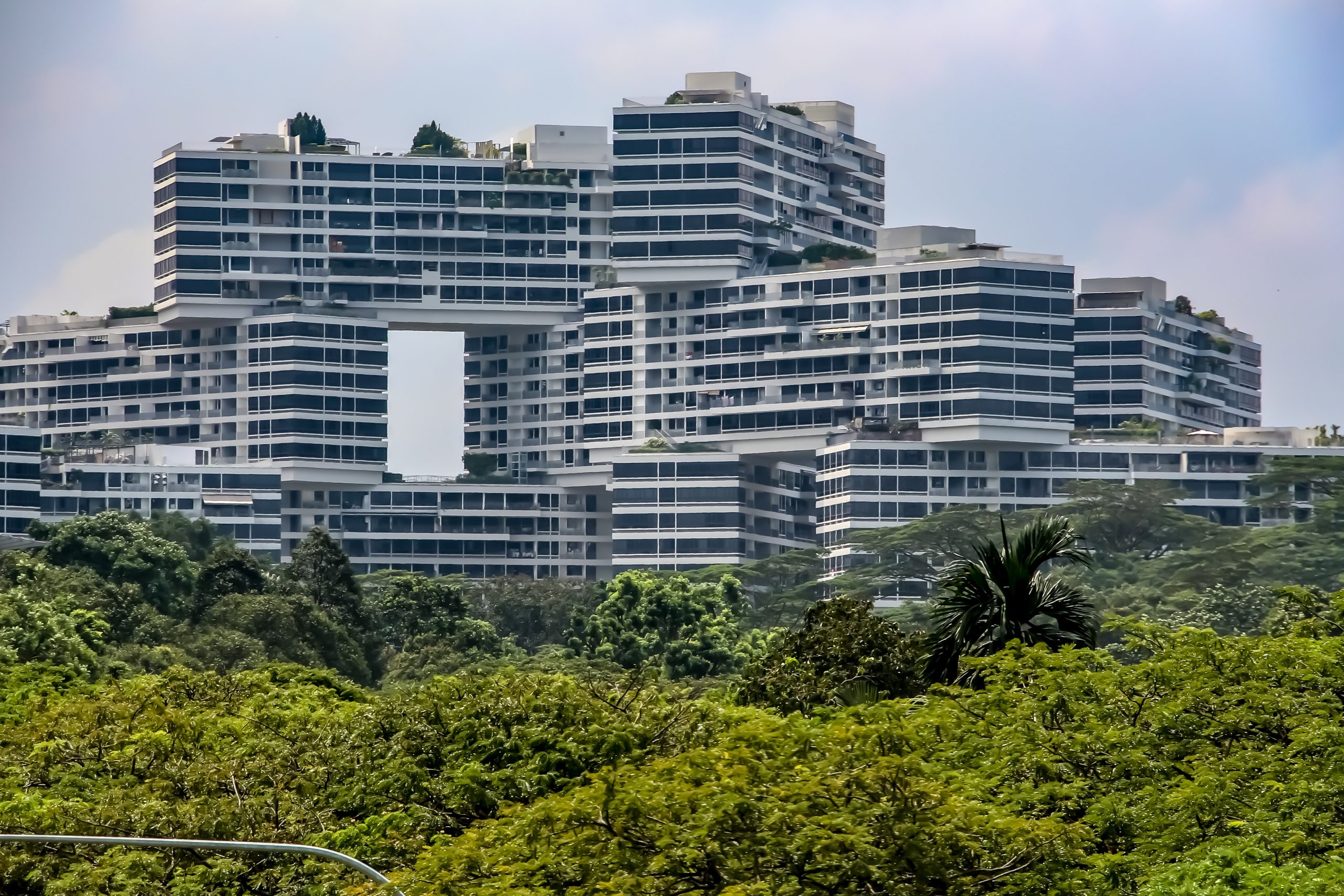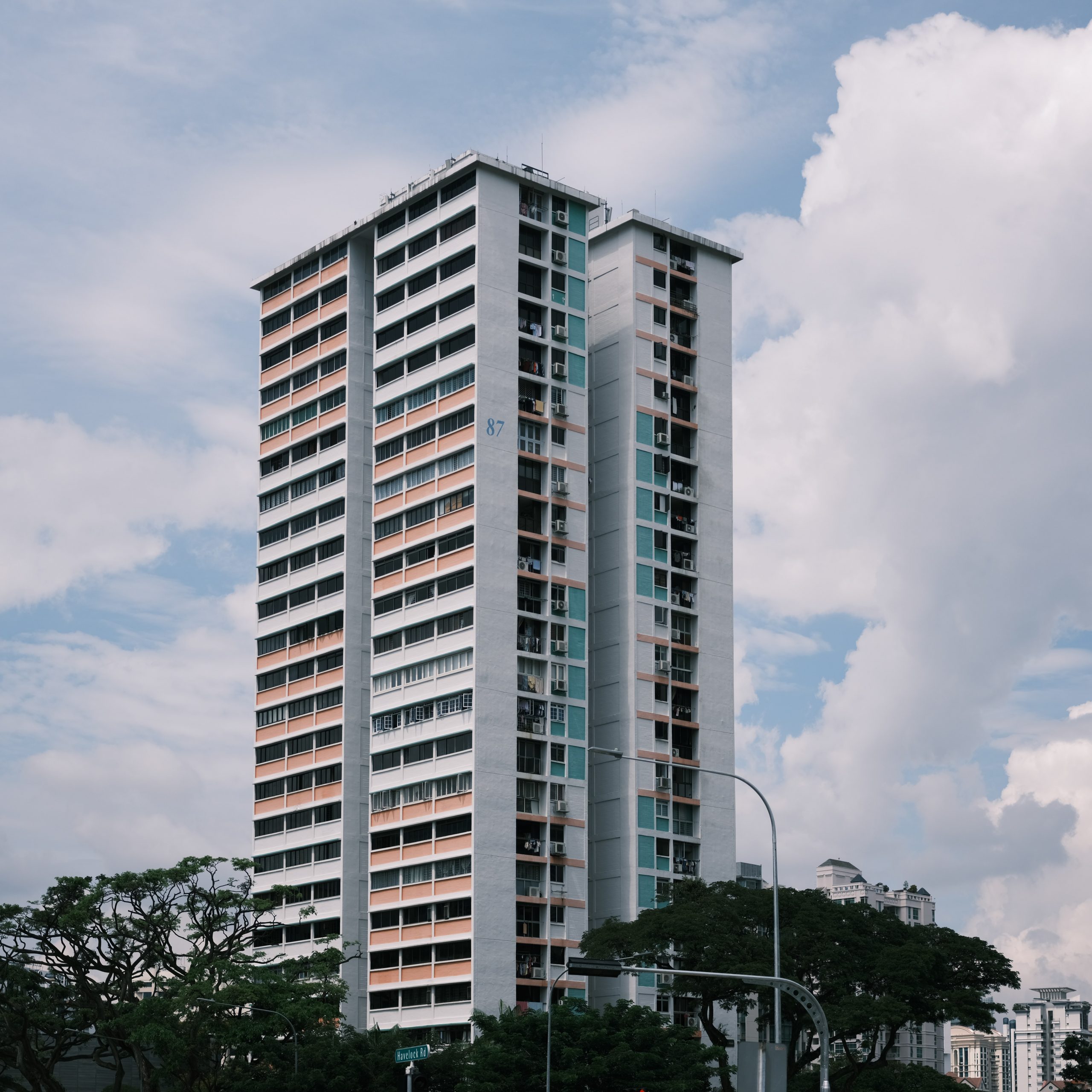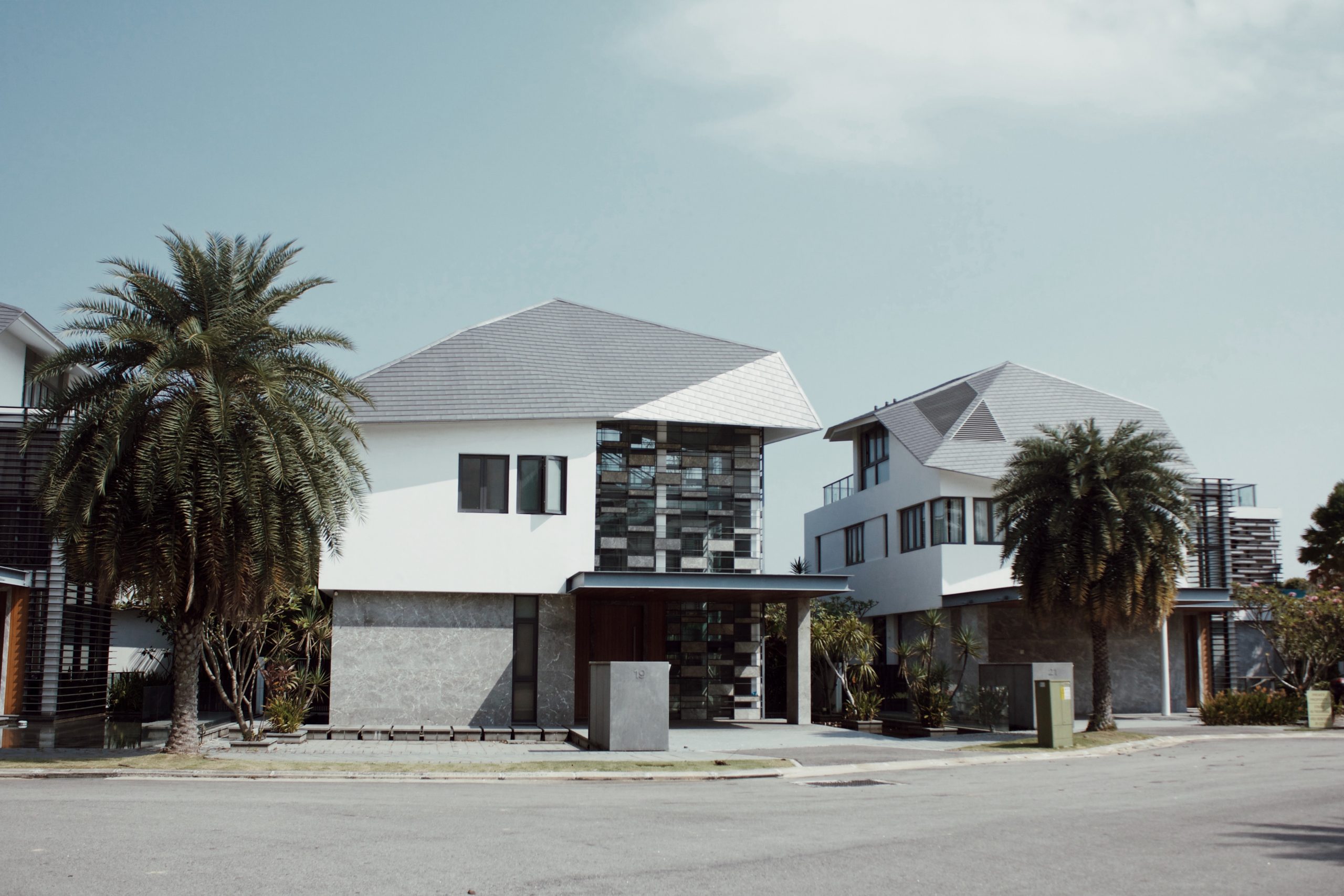According to Mercer’s 2019 Quality of Living City ranking, Singapore is ranked highest for quality of living in Asia-Pacific (25th worldwide). As one of the safest and cleanest countries in Asia, it’s no wonder that it’s a popular destination for expatriates or foreigners in search of a cosmopolitan city to settle down, find work and perhaps, even sink roots to raise a family.
But Singapore is also notorious for its high property prices and cost of living. For foreigners, our housing jargon can be confusing.
So if you’re moving to Singapore, you’re probably wondering which housing property should you rent or buy? We’ll cover the four main types of properties you should consider in this article.
Private condos

Pros
Private condominiums (also known as condos) are high-rise apartments with shared amenities and facilities for residents in the condominium compound, such as swimming pools, gyms, and security.
These are often in prime locations, closer to the Central Business District (CBD), or conveniently near an MRT station.
For example, One Pearl Bank (TOP 2023) is in a prime location within a 3-minute walk to Outram Park MRT, and High Park Residences is right next to Thanggam LRT station. Both have stellar views and fantastic facilities. TOP, short for “temporary occupation permit“, usually refers to the date that you can move into a newly-completed development.
There are also no restrictions for foreigners seeking to buy or rent condos. Because of that, more expatriates opt to stay in condos. So if you hope to find a stronger expatriate community, condos are your best bet.
Check out these five unofficial expatriate enclaves if you want to stay somewhere with a strong expat community.
Cons
Private condos are costly. In September 2021, condo resale prices rose by 8.9% compared to a year ago. A studio apartment can easily cost S$1 million, even on the outskirts of the city.
Executive condos
Pros
Executive Condominiums or ECs retain the facilities and privacy of private condos, but most of them are located in suburban areas. They are also slightly cheaper, but this depends – some ECs reach the prices of private condos once they are privatised.
Staying in the heartlands has its advantages – there are more family-oriented amenities and international schools, and it’s quieter than living in the CBD.
Cons
While ECs are similar to private condos, they are sold by the Housing Board Development (HDB) – a statutory board responsible for Singapore’s public housing – and have more stringent rules and regulations for purchasing and selling.
During the 5-year Minimum Occupancy Period (MOP), buyers cannot rent out the entire EC or sell the EC through the open market. But once the MOP is over, Singapore Permanent Residents (SPRs) can buy ECs.
For non-SPR foreigners, you can only rent the whole apartment when the MOP ends. Only when the EC becomes fully privatised ten years after TOP can non-SPR foreigners purchase ECs. So if you’re a foreigner, chances are, you can only opt for a resale EC once its 10-year run is due.
HDB Flats

Pros
These are high-rise flats built by HDB and located in the heartlands. They are affordable public housing intended for Singaporeans, with strict restrictions on renting and selling.
Some expats would prefer staying in an HDB flat because it’s generally cheaper than condos.
And since HDB flats are located in the heartlands, you’ll be living among locals. This is an excellent opportunity to immerse yourself in the local culture!
Cons
Sadly, HDB flats can only be sold via the open market after its five-year MOP is over. And only SPRs in a family nucleus can buy a resale HDB flat.
This means that you can only purchase a resale flat if you are an SPR applying with at least one other SPR applicant related to you by blood or marriage (i.e. a sibling, parent, or child under legal custody).
If you’re a foreigner wanting to rent an HDB flat, you’ll need a student pass or a long-term social visit pass. Tourists and expatriates with an employment pass are prohibited from renting one.
Landed Properties

Pros
Landed properties afford more space (a luxury in Singapore!) and privacy. You can even have your garden and pool!
Foreigners can rent any landed property. You can also purchase the following without needing to seek approval from the authorities:
● Strata landed houses in an approved condominium (not apartment) development
● A leasehold estate in a landed residential property for a term not exceeding seven years, including any further term which may be granted by way of an option for renewal
● Properties in Sentosa Cove
Here’s a handy guide from the Singapore Land Authority (SLA) on foreigner ownership of landed residential property here in Singapore.
Cons
Since space is a premium, landed properties like terrace houses are costly. There are few shared community spaces or facilities for a social life in the estate, which also means you’ll most likely invest in a car, which will add on to maintenance costs.
There are also many restrictions for foreigners who want to buy landed property. Besides those properties stated above, you’ll need to write to the Land Dealings Approval Unit (LDAU) if you’re going to buy the following:
● Vacant residential land
● Terrace house
● Semi-detached house
● Bungalow or detached house
● Strata landed house not within an approved condominium development under the Planning Act (such as a townhouse or cluster house)
● Shophouses for non-commercial use
Approval depends on a case-by-case basis, but one criterion includes being an SPR for at least five years and “exceptional economic contribution to Singapore”.
Stamp Duties and Taxes
Before buying any properties, you should also consider the Additional Buyers Stamp Duty (ABSD). The ABSD is on top of regular property taxes.
Foreigners buying property as an individual must pay an additional tax of 20% of their property’s purchase price or market value, whichever is higher.
But some foreigners can opt for ABSD remission under existing Free Trade Agreements (FTA). Currently, citizens or PRs of the following countries will be accorded the same Stamp Duty treatment as Singapore citizens:
● Iceland
● Liechtenstein
● Norway
● Switzerland
● Citizens of United States of America
Take note: if you wish to sell your property within the first three years of acquiring it, you also have to pay a Sellers Stamp Duty (SSD)!

Renting Process
If you’re opting to rent an apartment, make sure you prepare the following as well.
Letter of Intent (LOI)
Forwarded by the landlord, this is an agreement confirming the commitment on both sides. It outlines the rental terms and other conditions, such as lease length, deposit, and maintenance and repairs.
Deposits
After signing the LOI, you’ll need to submit a Good Faith Deposit (usually a month’s rent for a one-year lease). Upon completing the property rental, this amount will become part of your security deposit. The Security Deposit is to ensure that the property is not damaged when you leave.
Tenancy Agreement (TA)
This is the final building agreement between the landlord and the tenant. Ensure that the TA matches the scope of the LOI before signing the contract! The diplomatic cause – which allows you to break your lease if you must leave Singapore due to a change in employment, visa status, or order by the government – should also be included in your TA.
Which should you choose?
Besides these options, there are also co-living spaces and serviced apartments that you can check out. Ultimately, which to choose depends on your budget and preferences.
Do you want to assimilate into local culture? If so, resale ECs (after 10 years) or HDBs for rent may appeal to you more.
If you prioritise space and privacy, landed properties like terrace houses (subject to regulations) will work best.
And if you want somewhere near the CBD area with plenty of facilities (with better chances of securing a unit sans regulatory hurdles), you’ll want to check out private condos.
–
Are you a foreigner looking for a home in Singapore? Let us know in the comments section below or on our Facebook post.
If you found this article helpful, check out 7 stunning sea view condos in Singapore and Thirty-year-old single foreigner polls Redditors on where to live in Singapore – gets a variety of responses.
Looking for a property? Find the home of your dreams today on Singapore’s fastest-growing property portal 99.co! If you would like to estimate the potential value of your property, check out 99.co’s Property Value Tool for free. Meanwhile, if you have an interesting property-related story to share with us, drop us a message here — and we’ll review it and get back to you.
The post Condo, terrace house or HDB? Housing considerations for foreigners when moving to Singapore appeared first on 99.co.

















































































